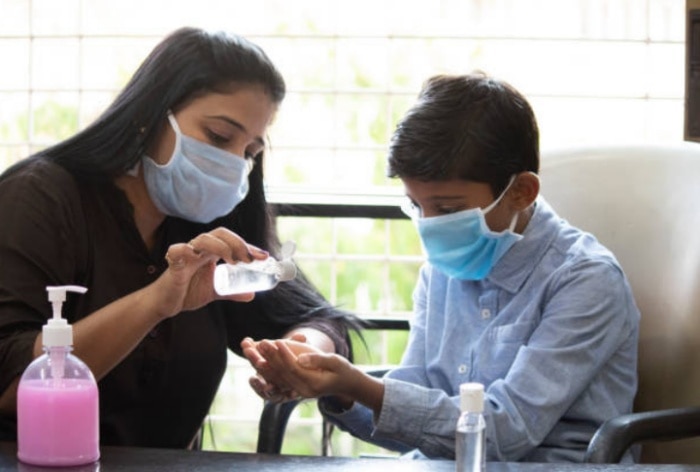India on Sunday registered a single-day rise of 656 COVID-19 infections while the active cases have increased to 3,742, according to the data posted on to the Union health ministry’s website.
COVID-19 Update: Maharashtra on Sunday reported 50 new COVID-19 cases, including nine new infections of the JN.1, taking the number of infections of the new sub-variant in the state to ten. According to officials, JN.1 patients include five from Thane city, two from Pune city, and one each from a rural pocket of Pune district, Akola city and Sindhudurg district.
One patient from Pune had travelled to the US, they said, adding that all the patients who had contracted the JN.1 sub-variant, have recovered.
India on Sunday registered a single-day rise of 656 COVID-19 infections while the active cases have increased to 3,742, according to the data posted on to the Union health ministry’s website.
The total number of infections since the beginning of the spread of novel coronavirus, three years ago, has surged to 81,72,135 in Maharashtra, a state health bulletin said revealed.
Maharashtra has so far tested 8,75,65,093 samples for COVID-19, of which 81,72,135 were found to be positive. As many as 80,23,418 patients have been discharged so far, it said.
JN.1 variant
The World Health Organisation (WHO) has classified the new strain as a separate “variant of interest” given its rapidly increasing spread but said that it poses a “low” global public health risk.
Even though the number of cases is rising and the JN.1 sub-variant has been detected in the country, there is no cause of immediate concern as 92 per cent of those infected are opting for home-based treatment, indicating mild illness, officials had said earlier.
‘Remain vigilant, don’t panic’: AIIMS
Amid the uptick in the cases of the new COVID subvariant JN.1, AIIMS doctors urged people to not panic but rather remain alert and vigilant.
“People are getting infected by the new sub-variant of COVID-JN.1 in many states of the country. The symptoms of the patients are mild. Therefore, there is no need to panic but the need to remain alert,” doctor Neeraj Nischal– an Additional Professor in the Department of Medicine at AIIMS Delhi, told news agency ANI.
“We have been saying this type of ripple will keep on happening. Even during the first and second waves, we predicted that this virus would mutate further and the stage would come where it would become more infectious but at the same time cause less mortality or morbidity,” he said.
Those suffering from cold, cough, or fever should maintain distance from other people and use masks and wash their hands with soap or use sanitiser, according to doctors.
In May, following a sustained decline in the trajectory of coronavirus cases, hospitalisations and deaths, and high levels of population immunity to SARS-CoV2, the WHO had declared that COVID-19 no longer constituted a public health emergency of international concern.
(With inputs from agencies)
–>
